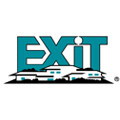By Maegan Carrasquillo, Staff Writer
In part one of this series, we addressed some great financial habits and tips that can put you well on your way to saving for a down payment or securing a good pre-approval, but there’s still the reality of inflation and wage gaps to consider. Several individuals find themselves in unique circumstances, or worse, facing even greater barriers when it comes to buying a home for the first time or getting back into homeownership. Today’s cost of living, and sky-high home prices can make it feel almost impossible for even the savviest saver, but the good news is there are an abundance of funding programs out there to help.
“This is a very complex topic,” explains Gina McCulloch, Area Sales VP, CMA, CMP with Fairway Independent Mortgage Corp., about the different available opportunities. She breaks it down here, offering an overview and links for further information:
- Special Incentive Programs for people in the military, police, fire, medical, or teaching fields. These programs can vary depending on location but often offer assistance with things like closing costs or discounts in the United States.
- Rural Development or RD is focused in rural areas, the U.S. Department of Agriculture’s Section 502 Direct Loan Program assists low and very low income applicants, and the Section 502 Guaranteed Loan Program assists approved lenders in providing home ownership opportunities to low and moderately low income applicants.
- VA- Veteran Loan that allows 100% financing for military personnel, active or retired, that meet the requirements of 180 days active military duty. Can be used by service members, veterans, and their surviving spouses.
- FHA- Federal Housing Administration program that allows for 3.5% down payment with minimum credit score requirements. A gift is allowed for 100% of the down payment but needs to be from an allowable source and the donor cannot require repayment.
- Fannie Mae (FNMA) and Freddie Mac (FHLMC) also offer programs with as little as 3% down, but the restrictions can be prohibitive. All have income caps.
- 203k or Rehab Loans– used for distressed properties or those needing updates and repairs. Allow the borrower to purchase a home for up to 110% of the proposed improved value, or the purchase price plus repair costs, whichever is less. Loan amount needs to be within FHA allowable limits and closing costs can be a gift.
All of the above can be applied nationwide, with bond programs offering state-specific guidelines. Bond programs can offer second mortgages for down payment, cash assistance grants, or lower down payments for certain income limits, but vary state to state. Down payment assistance and grants are also typically available in conjunction with bond programs but normally have capped income requirements. Some local municipalities within states also offer special programs. Grants are funded by many different sources and are typically no longer available once the funds have run out.
In Canada, some programs are similar but known by a different name or provided through a different lender. The Canada Mortgage and Housing Corporation (CMHC) is the nation’s housing agency, with a goal to help everyone in Canada have a home that not only meets their needs, but is affordable, by 2030. They offer a variety of programs for consumers as well as professionals including: first-time homebuyer and greener home incentives, as well as social and indigenous housing funding just to name a few.
A knowledgeable real estate salesperson will be able to guide you in the direction of many of these options or refer you to several professionals who specializes in these areas. Where there’s a will you can see there are many programs and options to help you find your way into homeownership.
Be sure to check back for part three of our series where we take a look at some new and out-of-the-box approaches to homeownership that may also help you get your foot in the door.
This article is for informational purposes only. Not intended to replace or substitute any professional financial, real estate, investment, technology, or other advice. EXIT Realty Corp. International makes no representations or warranties and expressly disclaims any and all liability concerning any action by any person following the info offered or provided within this article. If you have specific concerns or questions, you should consult with an appropriately trained and qualified specialist.


